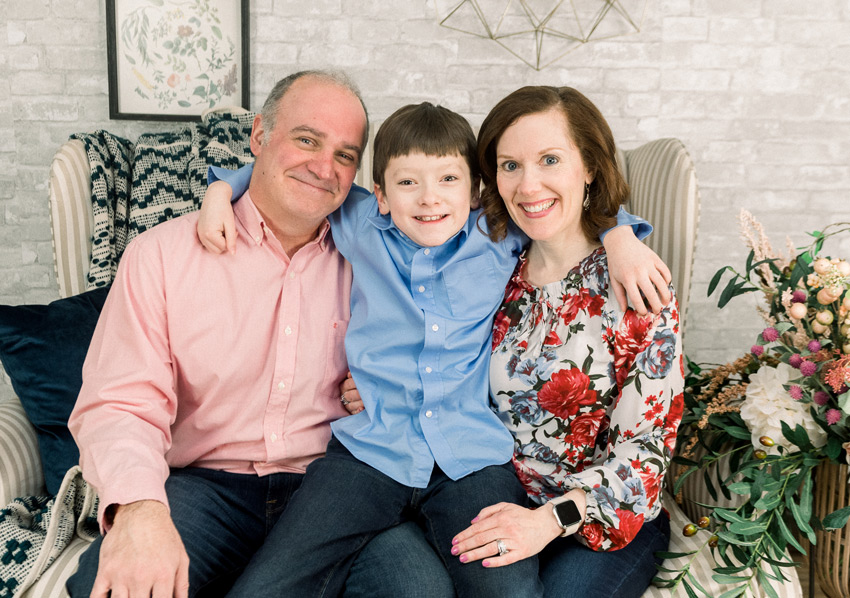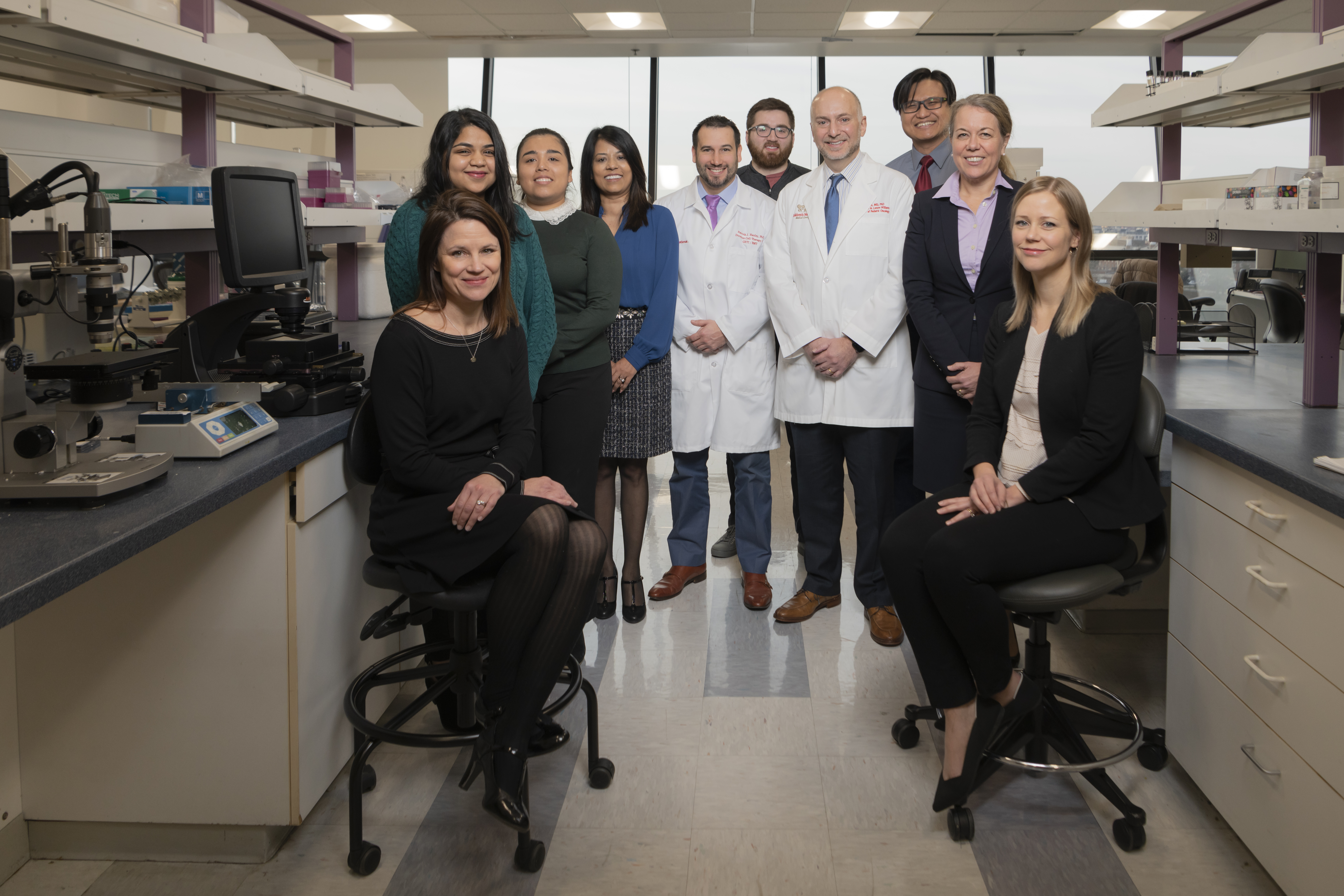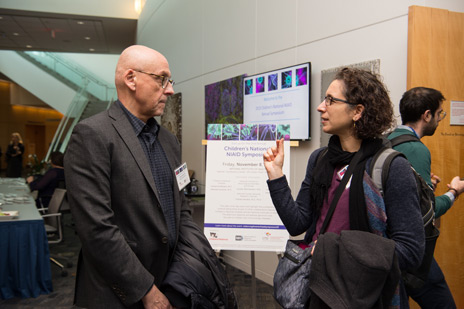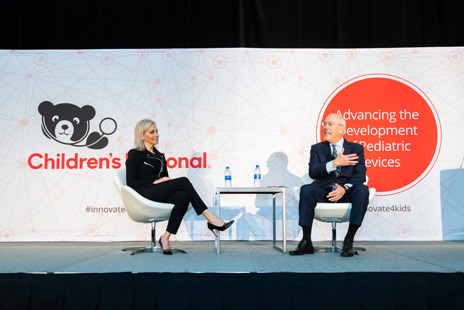Children’s National Research Institute Academic Annual report 2019-2020

Center for Cancer and Immunology Research
Getting to be a Kid is the Real-World Outcome of a Novel Immunotherapy Trial
Fourth grader Matthew McDonnell says yes to any school activity available to him.
At age 9, he recently celebrated his first soccer goal, is trying his hand at basketball, is learning the violin and sings in the chorus. “Whatever the school offers, he jumps on it,” said mom Linda. “He wants to do everything he can in life.”
Matthew has earned this real-life wisdom the hard way. At age 3, he was diagnosed with Wilms’ tumor — the most common pediatric tumor of the kidney. Unfortunately, Matthew’s tumor cell type was predominantly blastemal cells, making it exceptionally hard to treat with conventional strategies. Over the course of the next four years, his treatment team tried everything — multiple high-risk surgeries, chemotherapy, traditional radiation, proton therapy and integrative therapies — but the tumors continued to return.
No one was ready to give up, especially Matthew’s parents. Instead, they turned to the NIH-funded network of pediatric oncology clinical trials to see if a therapy under development might hold the answer. That’s where Matthew’s oncologist found the REST trial. REST is a Phase One clinical trial that manufactures T cells specifically to target and fight solid tumors. The T cells are extracted from the patient’s blood and enhanced in the cellular therapy lab of the Cell Enhancement and Technologies for Immunotherapy (CETI) program at Children’s National. The lab-based manufacturing process transforms the T cells into tumor-associated antigen cytotoxic T cells (TAA-Ts) that are trained to target Wilms’ tumor gene 1.
The manufacture and introduction of TAA-Ts has previously shown success when used in the treatment of relapsing blood cancers following hematopoietic stem cell transplantation, but REST is the first trial to test the effect of the patient’s own TAA-T’s on solid tumors.
Early results showed promise. “The T cell immunotherapy regimen resulted in prolonged disease stabilization in patients who previously experienced rapid tumor progression,” said Holly Meany, M.D., lead investigator on the solid tumor trial. “This therapy could prove to be an important component of immunotherapy for patients with solid tumor malignancies,” she noted.

For Matthew, the therapy has been a “game-changer,” according to his mother. “It didn’t make him sick; it didn’t make him tired. The only school he missed was our travel days for follow-ups. His life started to normalize. He felt great.”
In the two years since he received cellular immunotherapy, Matthew has shown no signs of a returning tumor — the longest span of time he’s been tumor-free since age 3. His family attributes this success to the REST trial. In addition to sports and music, training his puppy Bella and playing video games like any typical 9-year-old, Matthew is also a prolific fundraiser for pediatric Wilms’ tumor patients and clinical trials through his own nonprofit foundation, Matthew’s Hope 4 Miracles. Last year, his charity donated $20,000 to the REST trial to help it continue to the next phases of the trials.
This work is having a major direct impact on children, many of whom had exhausted all other therapeutic options. They are living longer than expected and in some cases are becoming long-term survivors."
Testing of targeted immunotherapy strategies using TAA-Ts for cancer of different types, including solid tumors like Matthew’s, is ongoing. The REST trial continues to enroll patients and is exploring how the TAA-Ts might be applied in tandem with chemotherapy to improve targeting of tumor cells and overall outcomes. In the long term, the team hopes to expand to a larger protocol available to Wilms’ tumor patients across the United States.
“This work is having a major direct impact on children, many of whom had exhausted all other therapeutic options,” said Catherine Bollard, M.D., M.B.Ch.B., director of the Center for Cancer and Immunology Research and the CETI program. “They are living longer than expected and in some cases are becoming long-term survivors. These are exciting clinical results using a novel ‘first in-human’ T cell therapy that has promise for saving these young lives,” Dr. Bollard noted.

